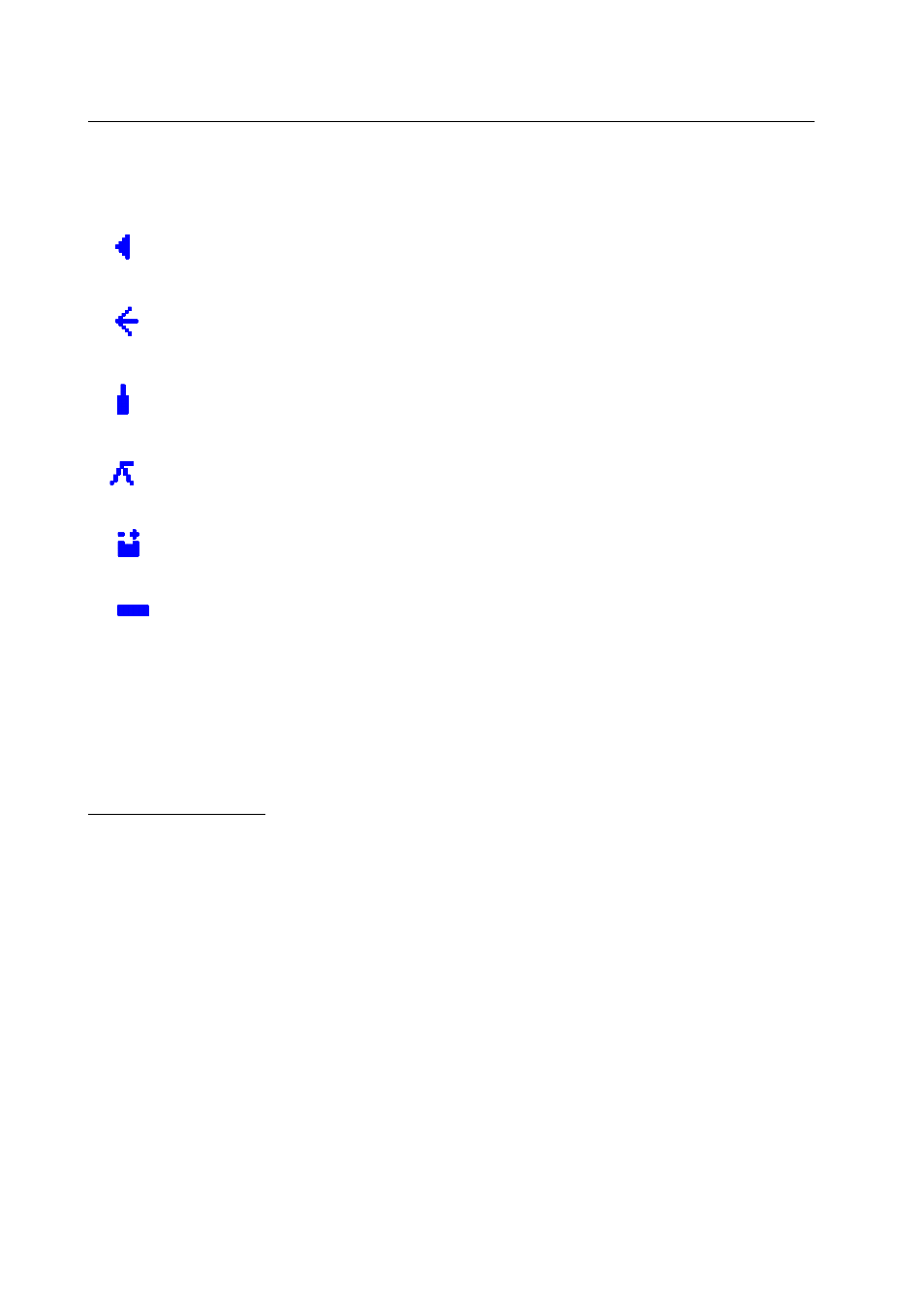Ion Science GasCheck IS User Manual
Page 17

GASCHECK 3000 & 3000IS MANUAL
Ion Science Ltd
Page 17 of 28
Unrivalled Detection. www.ionscience.com
Operation
Other display symbols
Small display indicators show zeroing, nozzle fitted, peak hold, auto range and low battery voltage.
Zeroing
This symbol appears whilst the GasCheck is zeroing then it disappears.
Auto range
This symbol shows when the GasCheck leak rate is not fixed within one range.
Nozzle
This symbol indicates that the GasCheck is being used with the Nozzle on.
Peak hold
This symbol indicates that the GasCheck display is held to the maximum.
Low battery
This symbol indicates that the battery pack is lower than required for use.
Negative
This shows the leak rate signal is negative (valid for testing some gases, see Table 4).
Audio and visual outputs
The GasCheck has an internal audio sounder and a flashing LED indicator.
They both operate together when the detected leak rate climbs from the zero indication towards the
maximum on the leak rate range (see Section 4.2.1). They also operate once to confirm a key press.
Prepare the GasCheck
Select which probe to use
Note: Whenever possible, use the Gas Check with the nozzle fitted. The nozzle helps to protect the short
probe from blockage or damage. You cannot use the nozzle with the long probe.
Open the storage case and remove the Gas Check. The Gas Check is supplied with the short probe fitted
and the nozzle fitted; a long probe is supplied in the storage case. Standard use is with the short probe and
nozzle. For higher sensitivity, remove nozzle and clear the nozzle symbol from the display (section 4.1).
Determine whether you want to use the short probe or the long probe and whether you want the nozzle
fitted, as follows:
Use the Gas Check with the short probe and without the nozzle to detect small leak rates of approximately 1
x 10
–4
ml/sec and lower. Press the nozzle key to clear the nozzle fitted indicator: refer to Section 4.1
The nozzle simply pulls off and pushes onto the end of the Gas Check. To remove the nozzle or to change
the probe, refer to Section 4.4.2.
